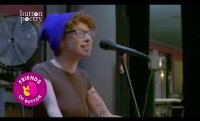Genre: Poetry
Barbara Stevens Poetry Book Manuscript Competition
Humor Story Contest
Garrett Hongo and Edward Hirsch
In this Poets House event, Garrett Hongo reads from his fourth poetry collection, Ocean of Clouds (Knopf, 2025), and Edward Hirsch reads from his new memoir, My Childhood in Pieces: A Stand-Up Comedy, a Skokie Elegy (Knopf, 2025), followed by a conversation between the authors about their friendship and humor.
Details and Images
“If the dandelion on the sidewalk is / mere detail, the dandelion inked on a friend’s bicep / is an image because it moves when her body does,” writes Rick Barot in his poem “The Wooden Overcoat,” published in Poetry magazine in 2012. The speaker of the poem draws a distinction between a “detail” and an “image” defining the latter as something connected to a larger context and personal history that is “activated in the reader’s senses beyond mere fact.” Compose a poem that experiments with this distinction, perhaps incorporating both a “detail” and an “image” so that each functions in an intentional way. You could consider beginning with an item and slowly shifting the reader’s understanding of its significance as the poem progresses. Look to Barot’s poem for inspiration on form and use of space.
Marissa Davis: End of Empire
Marissa Davis reads from her debut poetry collection, End of Empire (Penguin Books, 2025), in this Books Are Magic event with poets Sasha Burshteyn and A. D. Lauren-Abunassar. Davis’s book is featured in Page One in the July/August issue of Poets & Writers Magazine.
Ordinary Devotion
Many poems are written in the heat of falling in love with someone or something, with descriptions of desire, first touches, and breathless beginnings. But what happens after the crescendo when routine replaces urgency, when glances no longer surprise, and when love becomes less about being seen and more about staying? Write a poem about what it feels like to love someone or something after the rush. You could write about a partner, a city, a craft, or a version of yourself. Focus on the quiet gestures, the dailiness, and the things you no longer say out loud. How does love change when it no longer needs to perform?
Love Letter From the Afterlife
In this excerpt from an interview with NBC Chicago, the late Andrea Gibson reads their poem “Love Letter From the Afterlife” to their wife Megan Falley. Gibson died at the age of forty-nine on July 14, 2025.
Gratitude
In their poem “In the chemo room, I wear mittens made of ice so I don’t lose my fingernails. But I took a risk today to write this down.,” published in the Academy of American Poets’ Poem-a-Day series in 2023, Andrea Gibson, who passed away on July 14, wrote about a newfound gratitude for life while being treated for terminal cancer. “Remind me / all my prayers were answered // the moment I started praying / for what I already have,” wrote Gibson. Write a poem that expresses gratitude through confronting the mortal nature of being human. What do you already have in your life that you might be taking for granted? Perhaps begin by listing some of the beautiful things you saw today.
Kay Kassirer: Autism Speaks
“Autism wants to be understood, researched, and recognized as a disability, not a disease.” In this Button Poetry video, Kay Kassirer reads their poem “Autism Speaks (after Arvind Nandakumar).”








